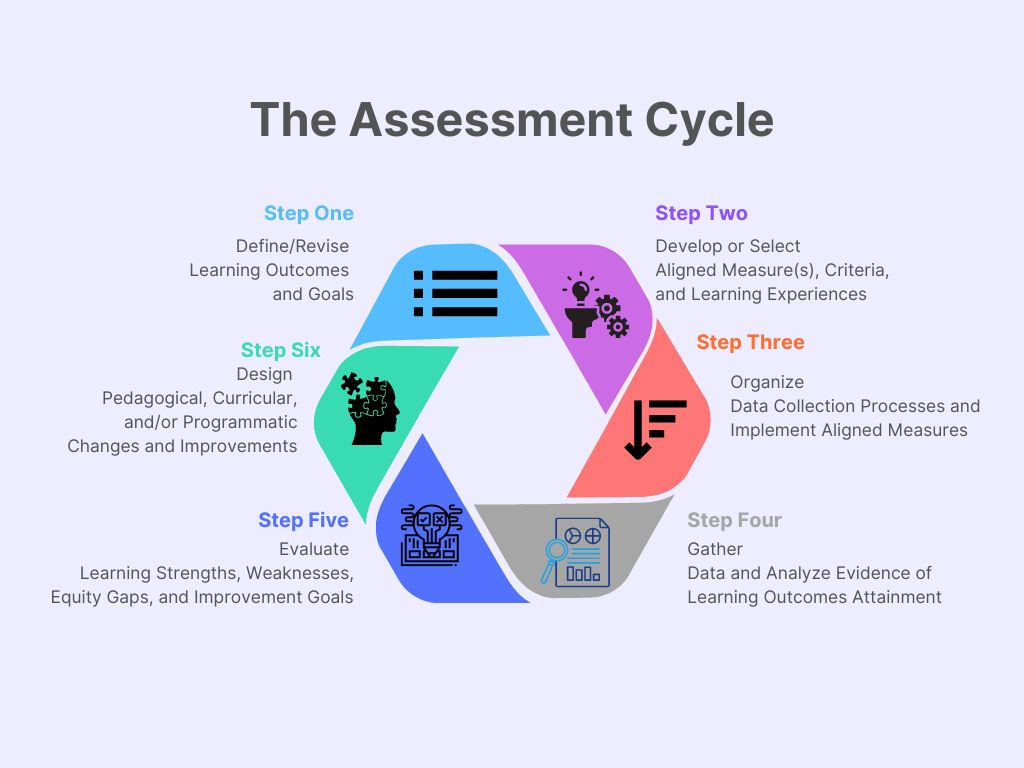Assessment
Assessment is an iterative process used by faculty and staff to support teaching, learning, and program delivery. The process is rooted in inquiry about what and how well students are learning. Accrediting bodies recognize assessment as an essential responsibility of faculty, staff, and administrators for demonstrating commitment to educational opportunity and improvement.
Assessment focuses on four basic questions:
- What do we want students to know or be able to do after completing an educational activity?
- Is the educational activity structured to ensure students have an opportunity to achieve the desired learning outcome?
- What information would we need to understand what and how well students are learning?
- How can we use the information we collect to support teaching, learning, and program delivery?
Assessment Cycle
Assessment Guiding Principles
The assessment of student learning is a vital element of educational practice requiring attention to guiding principles to ensure that effective, sustainable practices are at the heart of the institution's efforts.


